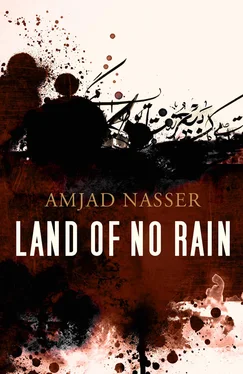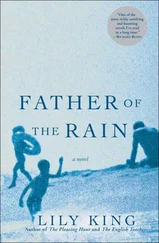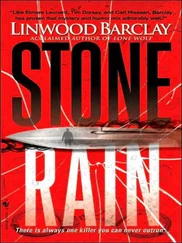You don’t usually wear a watch. You feel they’re like shackles, tying you by the hand and creating a coercive bond with time. Time is not a watch. An hour is a unit of time only in car parks, on punch-card clocks for workers and in the beds of prostitutes. Time has other criteria, some of which you see reflected when you look in the mirror, while others appear in the length and pace of your steps.
You have been given watches on particular occasions but you would take them off and put them in front of you on tables in public places and forget them, perhaps deliberately, and when you went back to look for them, just out of a sense of duty, you didn’t find them. Because people, even those who don’t steal, love to find things. There’s a thrill that’s hard to explain about finding something that someone else has lost. When someone found a watch you’d left, perhaps deliberately, on a table in a café, hotel lobby or restaurant, they could have handed it in to the person in charge, but they didn’t. You’ve never found any of the watches you’ve lost in the course of your life — to be fair, they’ve been few. You never doubted the honesty of those who found the watches. You would interpret the fact that you couldn’t find them as a kind of inevitable fulfilment of your secret desire to lose them, although you are not fatalistic. Of course, that’s having it both ways, but it’s not the only case of that. You didn’t usually regret any of the watches you lost. You don’t remember what make they were or what they looked like. You would exhibit a certain insincere distress when the person who gave you the watch saw that it wasn’t on your wrist. But deep inside, you felt relieved and liberated. It was another shackle broken. You were rid of that annoying tick. That was how you felt in general, but you were sorry, even remorseful, about losing one particular watch. It was an old wind-up watch that your childhood friend took off his wrist just before your hasty flight from your country. As he presented it to you, he said, ‘I know you hate watches as much as I hate books, but the only memento I can offer you is this watch of mine. Please accept it.’ It was a moving and sentimental moment. You felt, as he felt, that you would be away a long time and that you might never meet again. In your long exile you lived in several countries. You sat in innumerable cafés. You adopted a name that would be an additional cause of endless sleepless nights, and you never took that watch off your wrist — except to have a bath, because it wasn’t waterproof. But you lost it even so. It happened when you were attending a literary conference in a country not far from your own, before you went back. You had put the old wind-up watch on a table while a number of writers and inquisitive people were hovering around. It was the first time you had done this with that watch. You went to the bathroom and came back to the table. The audience was about to disperse and you left the hotel in a hurry to be in time for an appointment with a colleague in a café near by. You felt there was something missing, something you’d forgotten but couldn’t pin down. A few minutes later you remembered you had left your watch on the table. You stood up like an automaton and apologised to your colleague, saying you had left your passport on a table in the hotel. Only your passport was important enough to justify abandoning your colleague so hastily and in such confusion. Need one say it wouldn’t have been a passport issued by Hamiya? Naturally, of course: Hamiya didn’t issue identity papers to citizens who were in opposition or on the run. It would have been a passport from a government that was sympathetic towards the Organisation. Strange procedures such as that were common in those days. You didn’t find the watch on the table. The staff had cleared away the ashtrays full of cigarette butts and the coffee cups that had accumulated.
You asked the receptionist if anyone had handed in a watch that had been lying on that table (which you pointed at), and he said he knew nothing about it. You asked the staff who were milling around in the lobby, some busily and some idly, and they swore on their honour (not an oath one can always rely on in these parts) that they hadn’t found anything. After that incident you were given other watches that you didn’t much care for.
You went to the flea market. That was before the plague had started to spread in a way that was hard to control. You had no particular purpose. Perhaps it was just habit, or what you would call, with a trace of your old ingrained lyricism, tempting stubborn fate.
You made your usual tour of the stalls that displayed clothes, jewellery, old records and crockery. You stopped at a stall selling antiques. The goods on display were not necessarily the property of the stallholder, who apparently specialised in watches and clocks and went to hunt down his spoils in towns far and near. That was his trade, and also his passion. That’s what the man said, and it gave you the impression that there existed something like a ‘clock cult’ that brought together people of different backgrounds, something almost magical or religious. The man was an expert in watches and clocks. What he said amazed you, especially when he talked about the inner workings — the cogs, springs, hands, cases, faces, gearing, and the tiny batteries that make that faint ticking in a watch strapped unobtrusively to one’s wrist or a clock hanging on the wall. A hive of activity, all coordinated, toiling away with stubborn mechanical persistence.
The time that you need passes in a blink of an eye, whereas you have more than you need of time that doesn’t matter to you.
The slow time of waiting, and the fleeting time of happiness.
A time of stone, chalk and coughing, a time of air and drizzle.
Hundreds of microscopic metal parts intermeshing. Turning. Dovetailing. Overlapping. Working away tirelessly and thanklessly, under the enamel face. The man could have gone on talking for ever if you hadn’t interrupted him by suddenly turning your attention to something else. Among the finds that he had placed in a glass cabinet, locked to protect them from the dirt or from theft, you caught sight of a circular watch with a large white face and a faded gold case. Your heart pounded. You asked the man to show you the watch. He halted his rhapsody on the inner workings of watches, of time and ticking, opened the glass cabinet like someone approaching an altar or going into Ali Baba’s cave, and handed the watch to you. You began to inspect it: the large dial, the big Roman numerals engraved by hand, the long golden hands, the antiquated brown leather strap, the back stamped with the name of the manufacturer and where it was made. The hands had stopped at five to five. It had been a long while since you lost your old wind-up watch, but when you turned this watch over in your hands, it took you back to that hot summer evening when you left it on a table in that hotel lobby, surrounded by people none of whose faces you remember any longer. You told the man you wanted to buy the watch. It was expensive but you didn’t bargain as you usually do in such markets, and when he saw you examining the time that the watch showed he warned you that it didn’t work. He told you the company that made it no longer existed and that spare parts were probably not readily available, but he knew an old watchmaker who could repair it. The old watch-hunter winked at you and said, ‘There you are. It’s not every day you come across such a special watch!’
You put the watch on your left wrist as if it were a powerful talisman. When you went back home, your wife noticed it on your wrist. She knew you had once lost a watch and regretted it. You tried to hide your excitement. You didn’t want to speak. You just told her that all old watches are alike and closed the subject. You knew she was starting to probe into your past, maybe because you spoke about it more and more as though it were a lost paradise. At that moment you wanted to be alone with the watch. You went to the bathroom. You closed the door. Inside you there was a mumbling that no one but you could hear. You wound up the watch but it didn’t work. On your wrist it was more like a beautiful piece of jewellery than an instrument for telling the time, and you weren’t interested in following the hands of time as they crept with frightening regularity across the world and across the bodies of humankind. You remembered that when you had lost your watch that hot summer evening the time was about five o’clock.
Читать дальше












